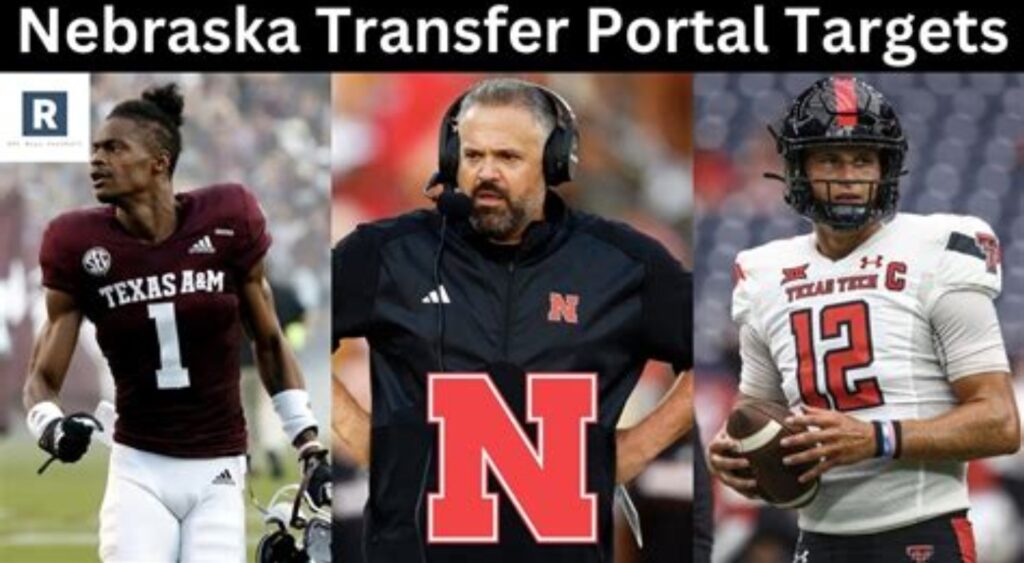In the dynamic landscape of college football, the Nebraska Cornhuskers have demonstrated a proactive approach in leveraging the transfer portal to enhance their roster.
This strategy reflects a commitment to immediate competitiveness and long-term program development.
Strategic Departures and Acquisitions
The transfer portal has facilitated both exits and entries for Nebraska, each move carrying significant implications. Notably, running back Dante Dowdell, who transferred from Oregon to Nebraska, has now committed to the Kentucky Wildcats. During his tenure with the Cornhuskers, Dowdell amassed 614 rushing yards and 12 touchdowns, showcasing his offensive prowess.
Conversely, the Cornhuskers have secured impactful talent through the portal. A significant acquisition is defensive end Williams Nwaneri, a former five-star recruit from Missouri. Standing at 6’7″ and weighing 255 pounds, Nwaneri’s physical attributes and high school accolades position him as a formidable addition to Nebraska’s defensive line.
Implications for Team Dynamics
The departure of a key player like Dowdell necessitates strategic adjustments in Nebraska’s offensive backfield. His contributions were instrumental in the team’s ground game, and his absence will require the coaching staff to identify and develop alternative rushing options to maintain offensive efficiency.
On the defensive front, Nwaneri’s arrival is poised to bolster Nebraska’s pass rush capabilities. His recruitment underscores the program’s emphasis on strengthening defensive pressure, a critical component in countering the high-powered offenses prevalent in collegiate football.
Broader Transfer Portal Engagement
Nebraska’s active participation in the transfer portal extends beyond individual transactions. The program has been involved in multiple player movements, both incoming and outgoing, as part of a broader strategy to refine the team’s composition. This approach reflects an understanding of the portal’s role in modern roster management, enabling programs to address immediate needs and capitalize on available talent.
Coaching Staff’s Role in Transition
The coaching staff’s ability to integrate new players and adapt to departures is pivotal. Their efforts in scouting, recruitment, and player development are essential in ensuring that incoming transfers assimilate seamlessly into the team’s culture and system. Simultaneously, they must manage the impact of outgoing transfers to maintain team cohesion and performance.
Fan and Community Engagement
The Nebraska fan base, known for its passionate support, plays a significant role in this transitional phase. Engaging with new players and maintaining morale amid roster changes contribute to a supportive environment that can influence team success. The community’s response to these developments reflects the deep-rooted connection between the program and its supporters.
Looking Forward
As the Cornhuskers continue to navigate the complexities of the transfer portal, the focus remains on building a cohesive and competitive team. The strategic acquisitions and departures are part of a calculated effort to position Nebraska as a formidable contender in the collegiate football landscape. The upcoming season will serve as a testament to the effectiveness of these maneuvers and the program’s adaptability in an evolving environment.
In conclusion, Nebraska’s engagement with the transfer portal exemplifies a proactive and strategic approach to roster management. By balancing departures with key acquisitions, the Cornhuskers aim to enhance their competitive edge and achieve sustained success in the seasons ahead.


